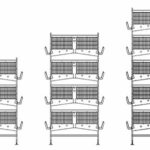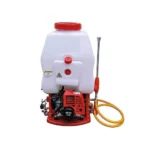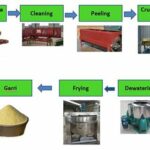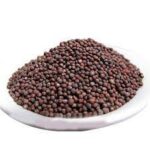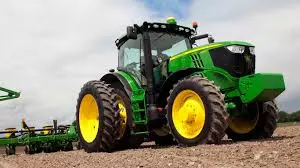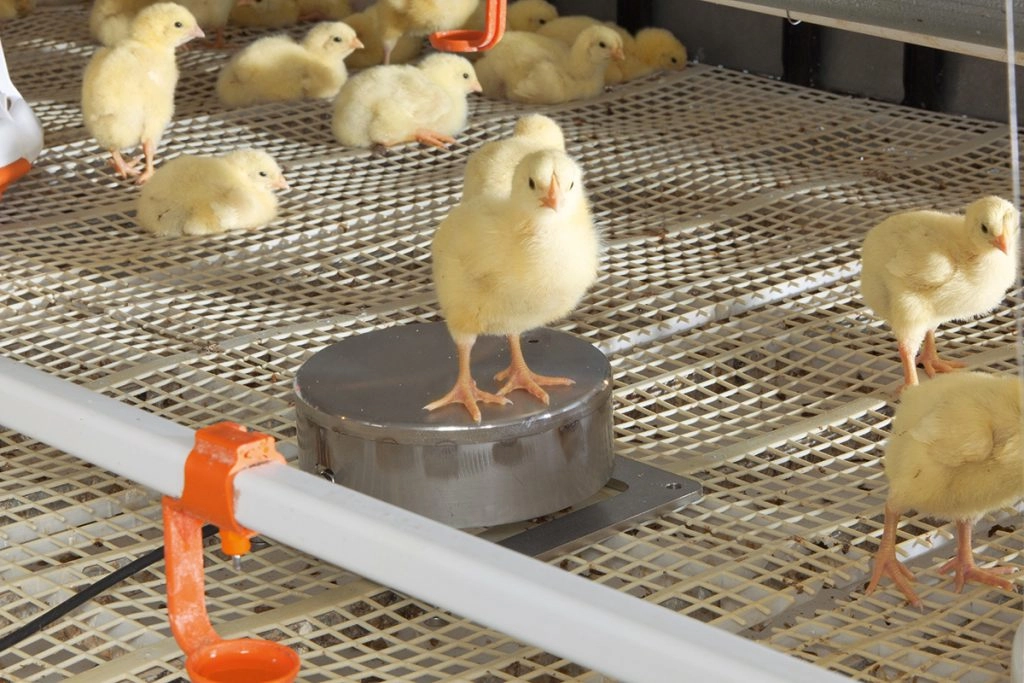The Best Tractors for Efficient and Effective Farming Operations
Weighing Scales: A Secret Weapon in Poultry Production
India-Africa Agribusiness Forum
10-11 February 2016. New Delhi. This is in continuation to the spirit of deepening India-Africa cooperation in Agrifood sector echoed during the 3rd India-Africa Forum Summit held at New Delhi.
The 2 day international business forum had the sector experts and business leaders from across Africa and India for an action oriented agenda to unlock the potential that both India and Africa have for engaging in this sector. Following African Countries participated : Benin, Togo, Seychelles, Malawi, Gabon, Togo, Nigeria, Ghana, Kenya, Mozambique, Zimbabwe, Tanzania, Uganda, Liberia, Cote d’Ivoire, DRC, Mauritania, Swaziland, Rwanda, Benin, Namibia, Guinea Bissau, Guinea, and Senegal.
India is keen to extend Line of Credit (LoC) to least developed African countries for joint venture business initiatives in agriculture sector. (…) We hope to extend lines of credit to joint venture Agri-business initiatives in Africa to deepen our engagement in the agriculture sector particularly in LDCs (least developed countries) and thereby help to support food security in both our regions. (…) Initially started in four countries — Benin, Burkina Faso, Chad and Mali, it had been extended thereafter to Malawi, Nigeria and Uganada. As agreed in the recent Africa Forum meet in New Delhi, it would be further expanded to Ghana, Togo, Tanzania and Zambia over the next five-year period. (…) Cotton is certainly an important crop in Africa as it is in India, but in many countries it continues to be exported as raw material without too much of value addition. The programme is an initiative to strengthen the cotton and textile sector in selected countries (of Africa),” Commerce Secretary Rita Teaotia
- Identifying the hotspots for agri-investments
- Commercial farming: Unlocking the land potential – need, opportunities, how and where to engage
- Logistical infrastructure development and management
- Agri industrialization: role of mechanisation, transforming extension services, importance of processing zones & Agriculture corridors
- Consumer oriented production chain and value additions to integrate in global value chains
- Innovative financing for catalysing and sustaining growth
- Resource use efficiency
- Research & Development
- Opportunities for cooperation in Dairy, poultry, fisheries & aquaculture
 |
Download the Study:  50 pages |
Technology
- Innovation ecosystem in India is thriving earning the country reputation of top destination for innovation, Science and technology. The enabling infrastructure provided by the government as well as the private sector is serving as a catalyst kicking in innovations for the bottom of pyramid segment for effective and sustainable growth.
- A lot of these innovations are in agrifood space and given that India and Africa face similar challenges in the sector, both sides can benefit through knowledge and technology sharing. India can play a critical role in building an analogous innovation led culture in Africa. This session highlighted some key opportunities for collaboration between India and Africa in Agrifood sector with a focus of easily adaptable, affordable and accessible models.
- The discourse covered innovation trends in high attention areas like Seed technology, ICT in agriculture, Climate Smart agriculture, Precision agriculture, Innovative technologies for integrated pest and nutrient management, etc; explore possibility of ‘diffusion of innovations’ between India and Africa and also Identify areas of human and institutional capacity development to foster innovation and facilitate effective dissemination of technologies
- Modern farm inputs (improved seeds, quality fertilizers and crop protection products) and state-of-the-art machinery are critical in building productive capacities of any nation in agrifood sector.
- This session focused on seeds, agro-chemicals and farm machinery and identified the existing engagements between India and Africa and going beyond, what could be the future trends.
- The participants deliberated on the possible partnership models that could be looked at in future both at B2B as well as B2G levels for building the transformative capacities in the sector.
- India has over the last six decades developed various indigenous financing models that have spurred the growth of the sector and supported the marginal as well as commercial farmers.
- Today, when India and Africa are looking at engaging extensively in the agrifood sector, with a significant chunk of it driven by private sector, it is very pertinent toidentify the innovative sources for financing trade, joint ventures, green field investments as well as technology transfers.
- These finances can come from donors, development banks, commercial banks, export-import banks and even as reinvestments from farmers themselves.
- This session evaluated different agri-financing models adopted by India and Africa; identified successful agri-financing models in African and Indian context; helped industry understand the new ways of financing agrifood ventures and suggest imperatives for government and industry to support such models.
Manufacturers of agricultural machines see ‘very strong’ market potential in Africa
- According to the survey, 43% of manufacturers believe that – already today – Africa is ‘very important’ or ‘absolutely essential’ for their company’s business.
- Looking at the sales perspectives for agricultural machines over the next 5 to 15 years, 3 out of every 4 respondents (73.6%) believe the African market to hold ‘great’ or even ‘very strong’ market potential.
- However, notwithstanding this positive outlook, agricultural machinery manufacturers continue to face a number of major structural challenges when doing business in Africa.
When asked about the most important factors that would need to improve in order to unleash future investments to promote successful mechanization efforts and develop effective local distribution and after-sales networks for agricultural machinery in African countries, manufacturers underlined the need for:
- a more reliable political and regulatory framework;
- a functioning banking system to improve access to finance; and
- a greater number of technology centres and demonstration farms to promote training and skills development for farmers handling machinery.

More than half of the respondents therefore believe that public-private partnerships (PPPs) hold the key to address these challenges, viewing them as a ‘very important’ or ‘absolutely essential’ tool in the quest to develop sustainable mechanization in Africa.
‘In light of a rapidly growing demand for food in Africa fueled by population growth, we believe a new approach is needed to promote sustainable mechanization and enhance agricultural productivity. Such an approach should combine reinforced institutional support with greater cooperation with the private sector with the help of PPPs. We are pleased to see that manufacturers share this view, as we are about to explore the development of a new and dedicated PPP mechanism for mechanization in Africa’, said Simeon Ehui from the Agricultural Global Practice from the World Bank.
‘If we want agricultural mechanization to succeed in Africa, all concerned – be they farmers, supporters, planners or policymakers – need to work together. The Alliance looks forward to collaboration among manufacturers, the World Bank and interested stakeholders to explore the development of new PPP approaches that promote tailored, inclusive and integrated mechanization in Africa.’, said Selami Ileri, Chair of the Agrievolution Alliance.
The survey was completed by 171 companies from 16 countries representing the main suppliers of tractors and other agricultural machinery in the world. The 16 countries include: Austria, Brazil, Canada, China, France, Germany, Hungary, India, Italy, Japan, Korea, South Africa, Turkey, Ukraine, United Kingdom and United States.
Related:
21 January 2016. Istanbul, Turkey. AGRI EVOLUTION 2016:FIFTH WORLD SUMMIT ON AGRICULTURE MACHINERYFarm Machinery to Feed the World: Bridging agricultural sustainability with innovation and technology (In conjunction with Agro Eurasia International Agriculture and Agriculture Machinery Fair).
Agrievolution Summits are held in conjunction with global agriculture industry events at rotating world locations approximately every 18 months in order to share information, bring focus to global industry initiatives and collaborate with world agriculture leaders on relevant issues. Summit participants include Alliance partners, invited associations, government officials, academia, top level farmers and other agricultural stakeholders.
About the Agrievolution Alliance:Representing more than 6000 agriculture equipment manufacturers around the world, the Agrievolution Alliance was established in April of 2012 to facilitate collaboration within the agriculture equipment manufacturing industry among important agricultural regions of the world. It was launched on the shared belief that in today’s global agricultural economy, it is crucial that current issues and future challenges be viewed from a global perspective and be addressed on a global basis (www.agrievolution.com)
About CEMA – European Agricultural MachineryCEMA is the European association representing the agricultural machinery industry. The industry represented by CEMA includes 4,500 manufacturers of agricultural equipment employing directly 135,000 persons and indirectly in the distribution and service network another 125,000 persons. The companies are mainly small and medium-sized manufacturers according to the EU definition and in 2014 had a total turnover of 26billion euro (www.cema-agri.org)

